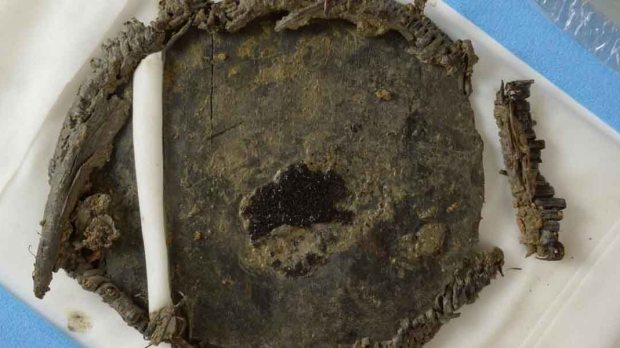In 2012, the recession of glaciers in the Alps allowed researchers to start an archaeological dig. The excavation yielded a number of artifacts, including a rather unimpressive round box. Now, after much closer examination, scientists say the little box may be the most exceptional find in the lot.
The analysis was conducted by researchers from Germany’s Max Planck Institute for the Science of Human History and the University of York. National Geographic reports that, through microscopic and molecular analysis, researchers found proteins and fatty acids left in the box, which suggest it once contained cereal grains, such as wheat, spelt, emmer, and barley.
The Max Planck Institute describes why this find is significant:
“The domestication of plants, such as wheat, was one of the most significant cultural and evolutionary steps of our species, but direct evidence for the use of domesticated plants, for example, in early culinary practices, has remained frustratingly elusive,” the institute stated online.
Wheat was the first crop to be domesticated by early humans in the Fertile Crescent region. This advancement marked change in human lifestyle from the role of hunger-gatherers to a more agrarian way of life. This find reveals a rare piece of information that will help researchers trace the spread of farming practices in Eurasia.

